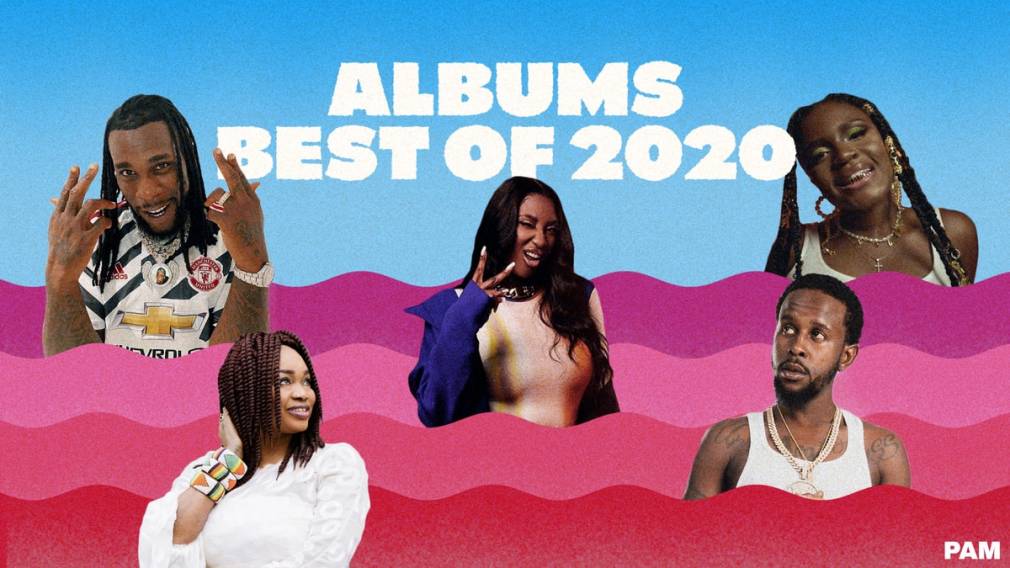2021 is fast approaching and it presents the opportunity for PAM to look back on the best albums of the last year.
A difficult year is drawing to a close, one in which the world of music and culture was brought to a standstill for far too long for the entire ecosystem to emerge unscathed. The balance sheet is bleak and the impact worrying, but the artists adapted to constraints, notably through the development of the livestream. It became a way of maintaining the link between artists and public, at least for the time of a concert, where we found ourselves transported into a studio space or a living room, places that are usually off limits. Digital technology has also made it possible, for some, to compensate for the drop in physical record sales, while streaming has made progress. But in many countries it is live music that has been dealt a real blow. It is essential to the (economic and even existential) survival of artists.
In the meantime, PAM has approached its journalists and writers to ask them for a selection of albums released in 2020, ones that characterise the diverse tastes of the team and the wide range of genres that are linked to the Afro cultural universe. Hip-hop, jazz, reggae, electronic, traditional and urban music, and even intercontinental dialogues … it’s enough to form a rich retrospective story, leading us to rediscover gems that may have been missed the first time round. As we get ready to enter the new year we are armed with fragile optimism, and looking back to take stock of the good moments should only strengthen our resolve.
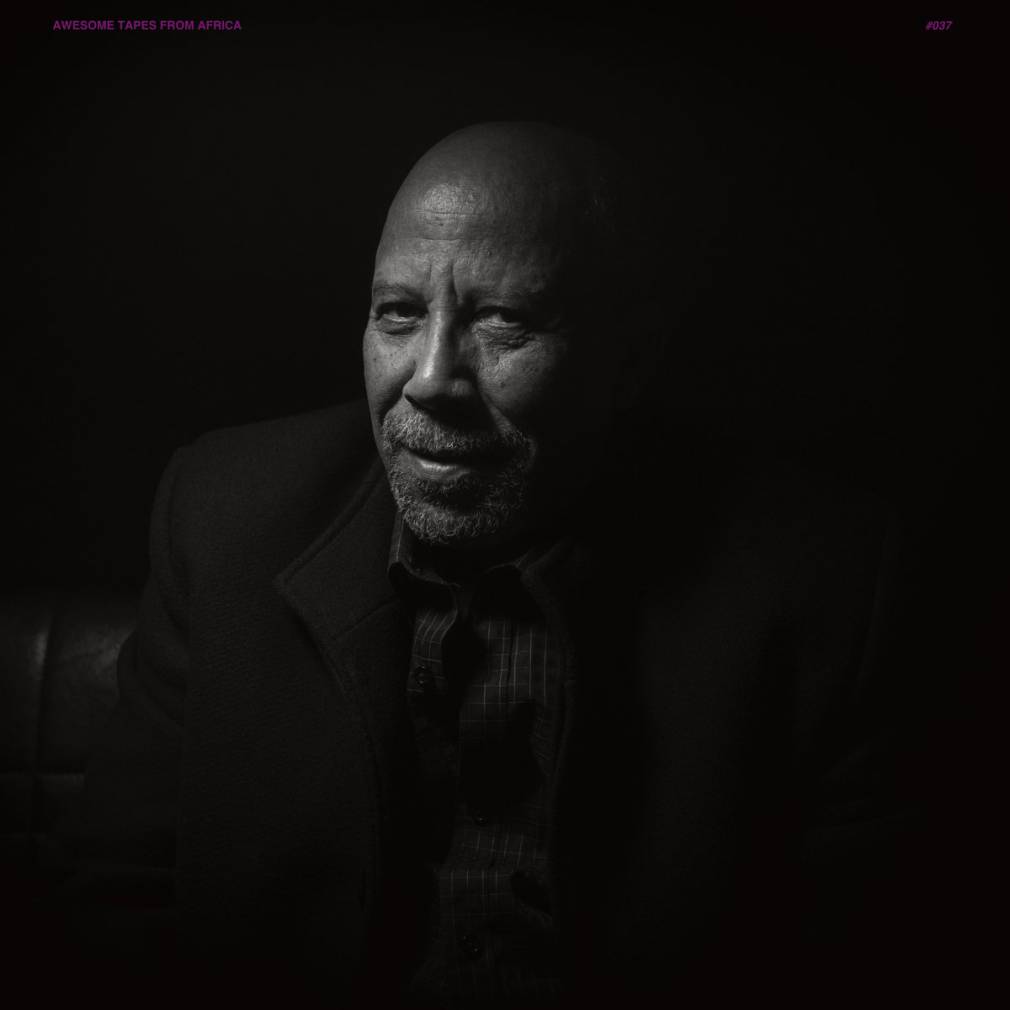
Hailu Mergia
Yene Mircha
(Awesome tapes From Africa)
We all love a good backstory and Ethiopian keyboard wizard Hailu Mergia’s charming tale is of a legend quietly going about his business as a taxi driver in Washington DC whilst releasing the odd album such as Yene Mircha in April 2020. Mergia’s music was revived when Awesome Tapes From Africa reissued his 1985 Afro-futurist opus Hailu Mergia and his classical instrument, and 2020’s Yene Mircha which translates from Amharic as `My Choice’ reminds us why the taxi driving maestro is such a singular talent.
Anchored by a tight trio, Yene Mircha is a slicker affair than the lo-fi noodling of Mergia’s legendary cassette, and more wistful than the vinyl released during his days in Ethiopia’s great Walias Band. Switching from twinkling Fender Rhodes to fat Moog synth, organ and accordion, Mergia’s arrangements are jazzy with a modal nod to Ethiopia and even gospel on`Yene Abeba.’ A soothing album for troubled times. – Lucas Keen
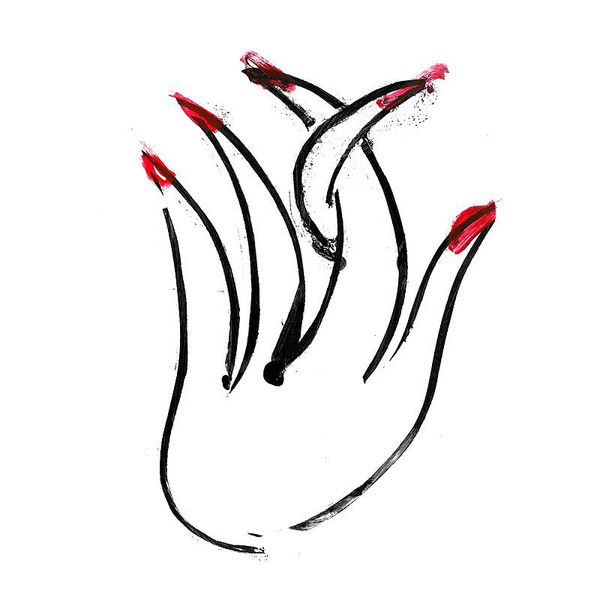
Nídia
Nao Fales nela que A mentes
(Principe)
There are those artists who are associated with a stage or with a label, but who have such a strong artistic identity that they remain unclassifiable. This is the case of Nídia. This year, the 23-year-old beatmaker from Lisbon affiliated with the Príncipe Discos label has given us no less than three different projects: an album (Não Fales Nela Que A Mentes) and a double single (“Badjuda Sukulbembe”) both released on 22nd May, and finally an eponymous EP released just a month later. A triptych with which Nídia has been able to demo many facets of her talent, each time with a different mood. With Nídia é Má, Nídia é Fudida (2017) she made us dance. The atmosphere of her new album is calmer and more meditative. Some of the tracks are imbued with trap and take us to a dark, nocturnal and mysterious world (“Popo”, “Rap momento”, “Rap tentativa”), while others are more playful and full of serenity and light (“Nik Com”, “Raps”, “Emotions”). And I challenge you to sit quietly in a chair whilst listening to “Tarraxo Do Guetto” or “Capacidades”… – Renaud Brizard
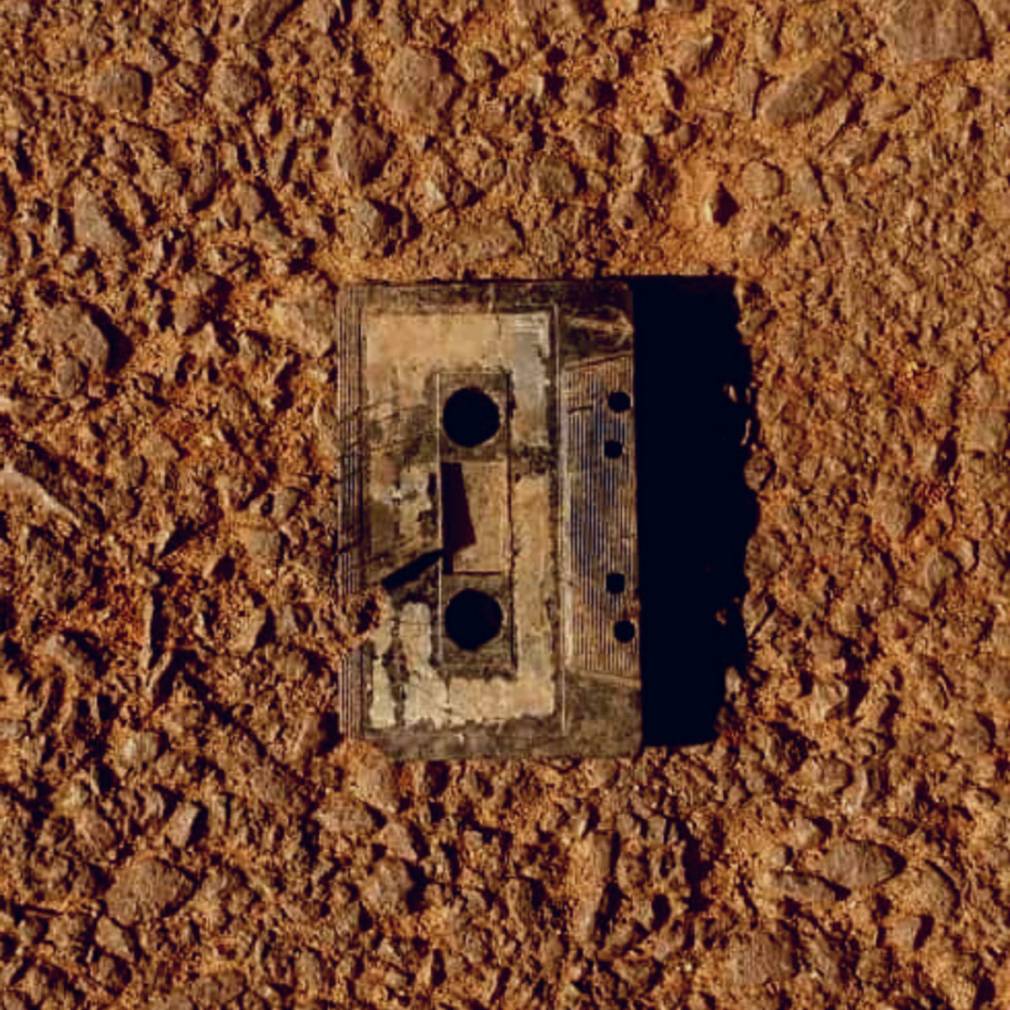
Various Artists
L’esprit de Nyege
(Nyege Nyege Tapes)
A creative hub in the Ugandan metropolis, Kampala’s Nyege Nyege Tapes deal in lo-fi Afro-Futurism with a fierce BPM and 8-bit sensibility. For the sixth (and online) edition of their intersectional Nyege Nyege festival this afropolitan collective curated a 96 hour Pan-African feast of underground dance music from across the continent and diaspora.
Showcasing the resilience, energy and fierce originality of those that made it happen, L’esprit de Nyege features a good helping of South African Gqom, Balani Show from Mali, diasporic dancehall, and glitchy genres yet to be catalogued. Available on Bandcamp who also deserve special mention this year for their Band Camp Fridays and support of Black Lives Matter. – Lucas Keen
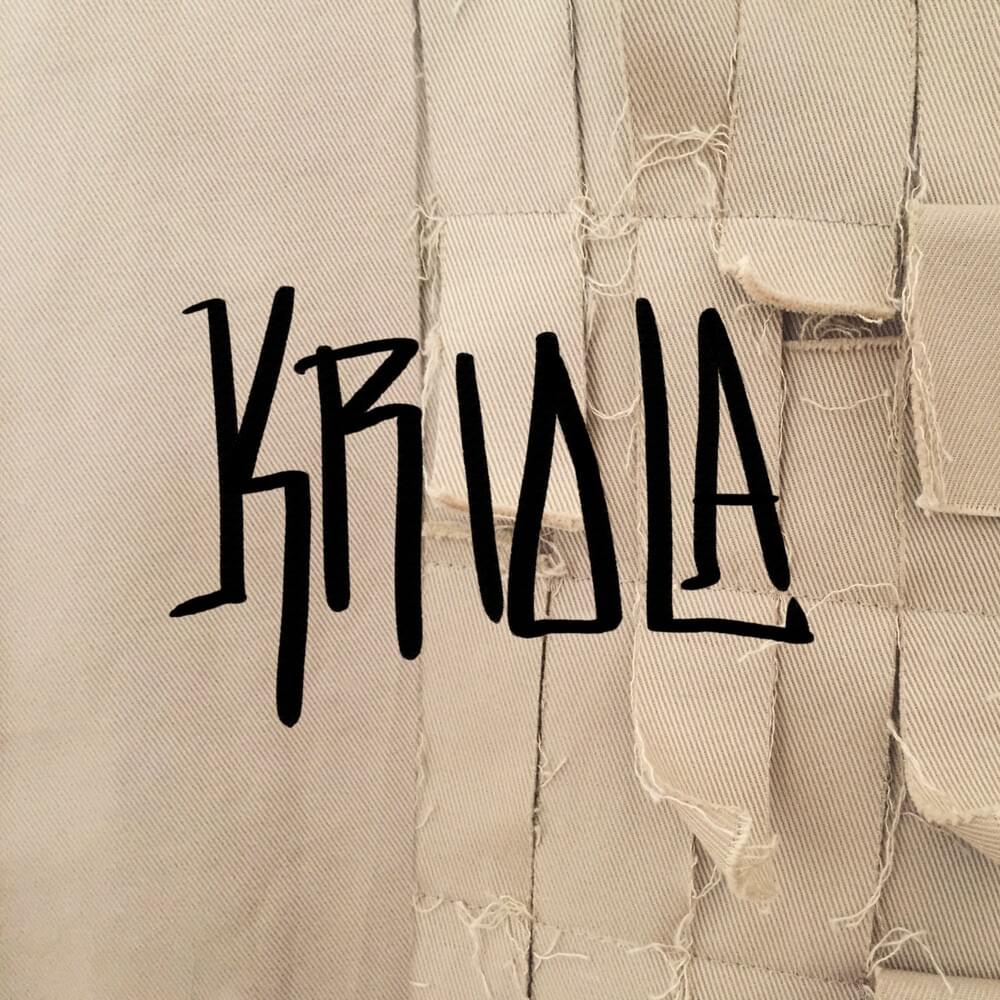
Dino d’Santiago
KRIOLA
SME Portugal
For his fourth album, the Cape Verdean artist who’s living in Lisbon honors the musical heritage of Cape Verde by blending it with contemporary sounds such as house on “Sofia”, afrobeat on “My Lover”, or rock witch vocal distortion on “Flan Pamodi”. The best example of that fusion is his masterpiece “Morna”, in reference to the musical genre popularised by Cesária Évora, which evokes the desire to find someone or something lost. A traditional stringed instrument similar to the cavaquinho, autotune, vocoder and bass from the trap are mixed together to create the Morna. — Rémi Benchebra
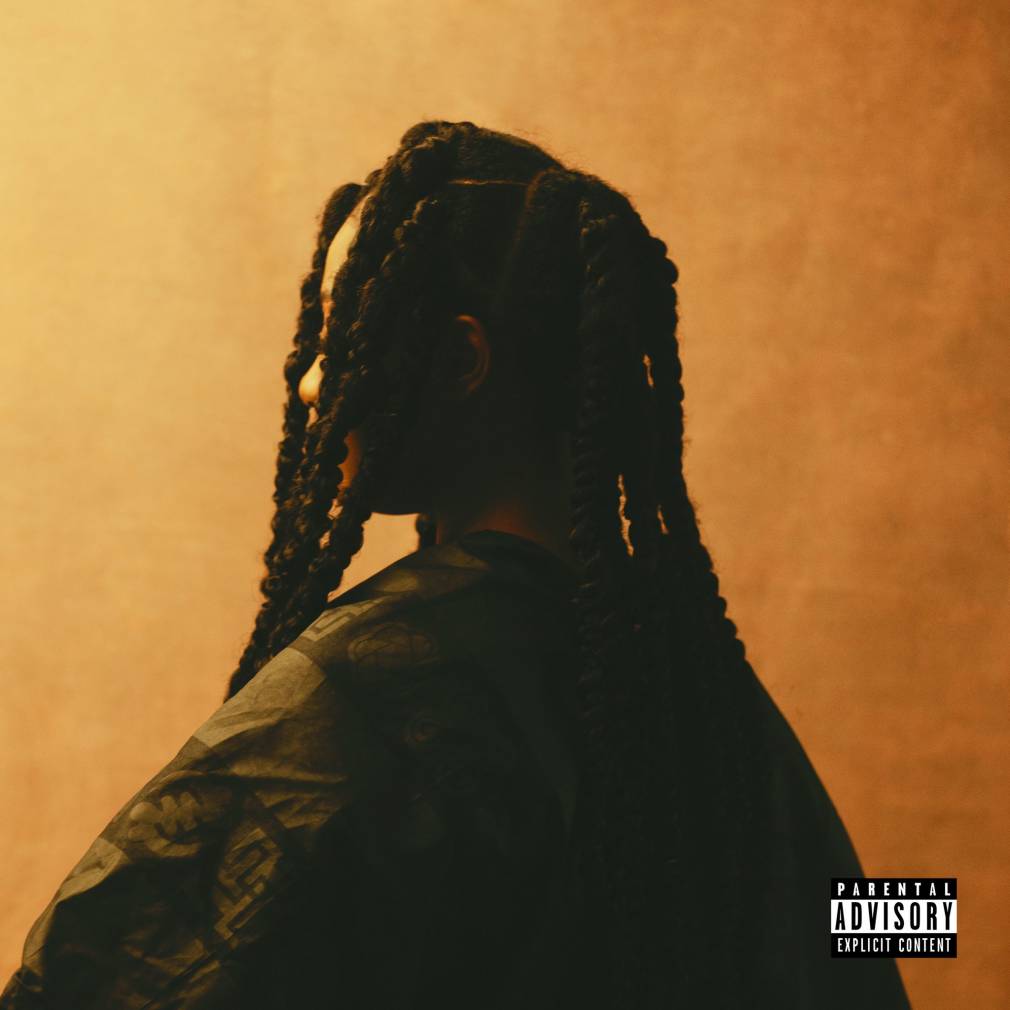
Tems
For Broken Ears
(Leading Vibe Ltd)
Solid production and a magnificent voice do not necessarily a good RnB album make. The secret lies in the feeling, and in the ability of an artist to convert the emotions contained in the lyrics into something palpable. From the first track “Interference”, it is clear that Tems is endowed with such a gift. She is, however, a secretive artist who sang in the shadows until 2018, before tentatively deciding to put her title “Mr Rebel” online. In the space of a handful of singles, the Nigerian’s popularity has gone through the roof and earned her masses of praise on the urban scene. She received many plaudits for her debut mini-album that mixed dancehall and soulful sounds, serving as a springboard for her characteristic flow and introspective lyrics. She is a flawless performer who all the more deserves her place at the top when we learn that she did the sound design on “For Broken Ears” from A to Z, without any outside help. A form of authenticity that she explained in an interview earlier this year: ‘All of my songs are personal and I sing them from the depths of my soul. […] I try to be as real as possible. I am sincere with my feelings and who I am, and I devote myself fully. Of course, the music exists for others, but I will never be a conformist. Anyone who knows how to connect to what I do will relate to it.’ — François Renoncourt
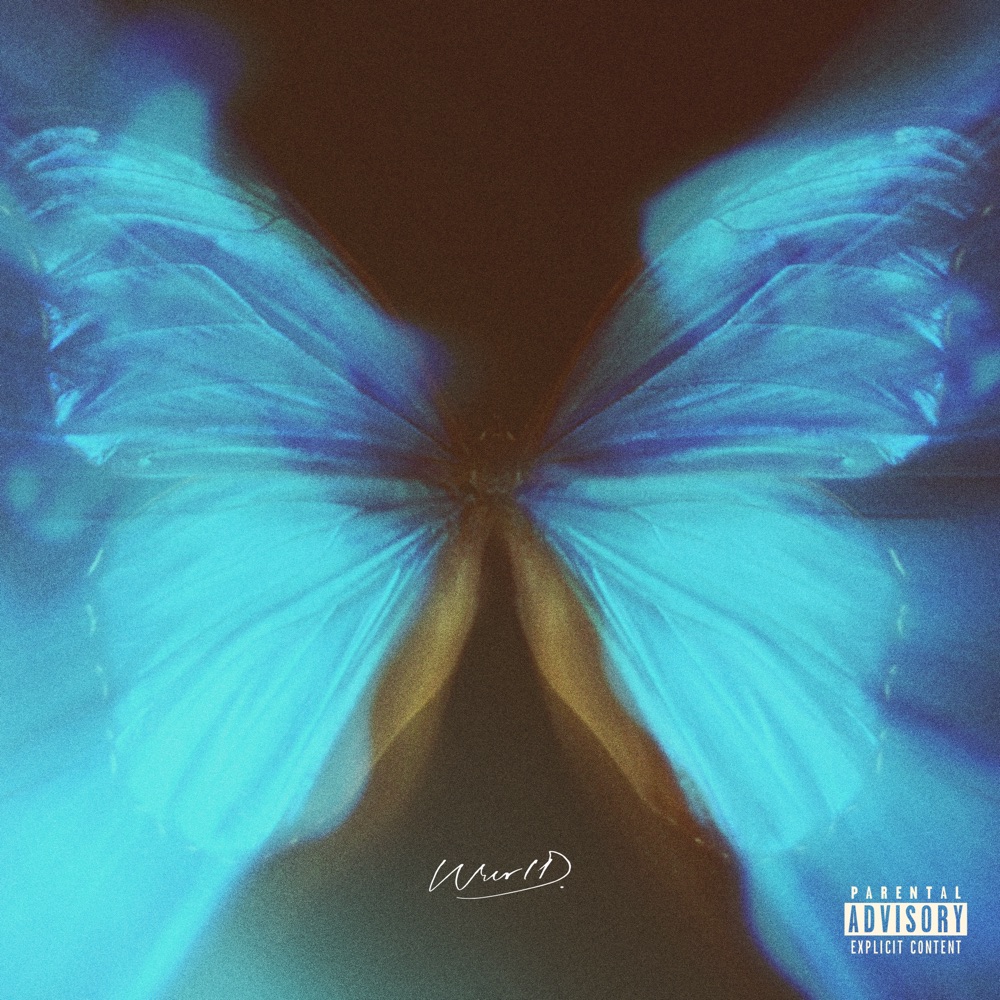
WurlD
Afrosoul
(WeareGvds/ Immensum Music)
“Afrosoul”, released in May, is the Nigerian singer’s umpteenth (and successful) attempt to push the limits of Afrobeats further than ever. If the genre was born in the frenetic streets of Lagos, this project brings it to chic and elegant spheres, tending towards Jazz, Soul and even Rock. In this musical journey, the singer’s lyrics accompany the listener to the depths of his emotions, stimulated by the artist’s stories of love, betrayal or success. If WurlD is not the first to try to export Afrobeats by modifying its essence, this time the approach is done intelligently, notably by relying heavily on the loyalty of his Nigerian audience. By singing in pidgin, surrounding himself with producers like Kel-P and keeping the dancing rhythms of the genre, the singer made sure that his project could also satisfy his country’s listeners. In short, “Afrosoul” is an organic and well-crafted experiment, in an era where more and more African superstars try to seduce a Western audience by making their music “accessible” . – Nils Bourdin
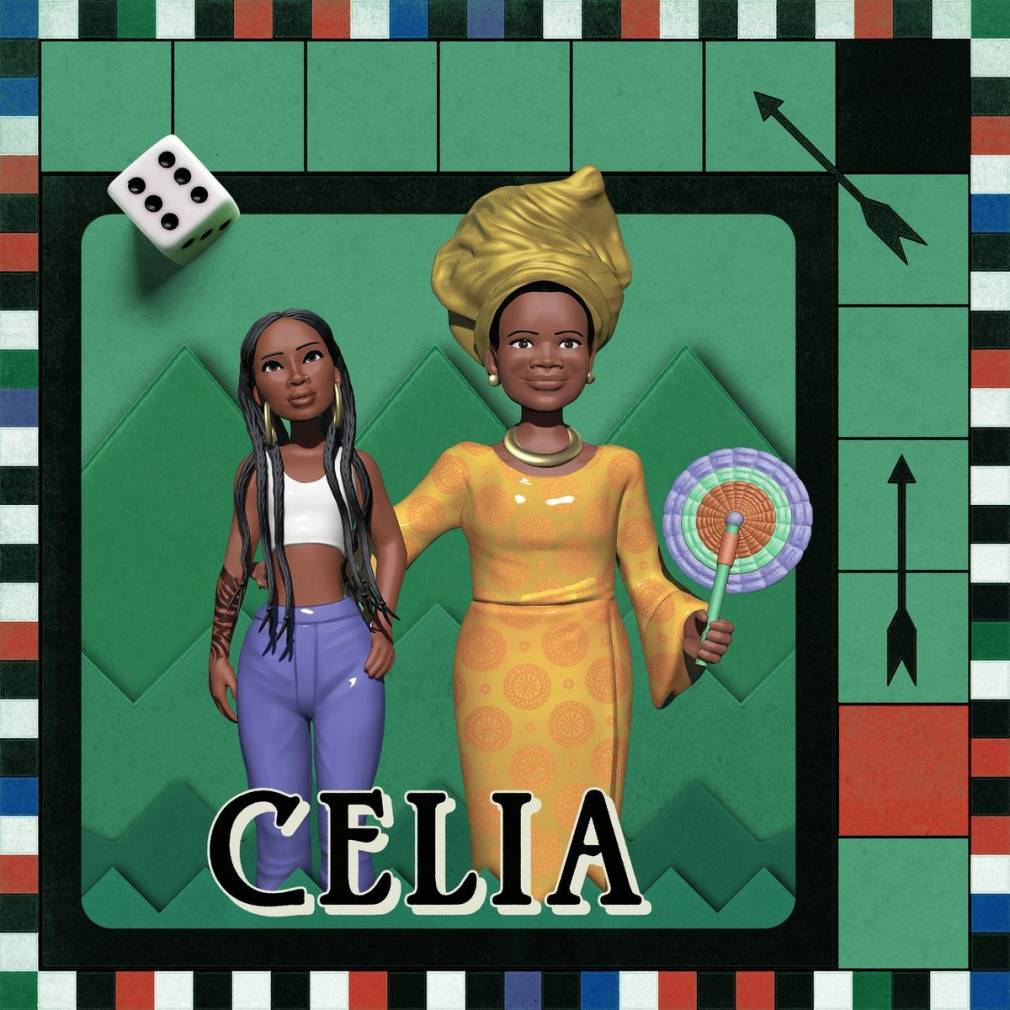
Tiwa Savage
Celia
Universal Music South Africa
Tiwa Savage is an artist who has been an essential part of the Afrobeats scene for more than a decade. She needs no introduction: with a career spanning more than 10 years, with numerous classics, hits and four albums, the singer has achieved superstar status. In 2018, she even beat Davido, Fally Ipupa and Shekhinah to the title of best African artist at the MTV Europe Music Awards. Released on the American label Motown, her fourth album once again sets the bar very high, deploying a suave mix of various Afrobeats and RnB as well as prestigious collaborations with Sam Smith, Davido and Naira Marley, offering seductive alchemy on each track. Alternating between English and Yoruba, Tiwa has found a recipe for worldwide success. Her contagious drum beats are more than an invitation to dance, they are a real, addictive incentive to move. – Julie Denis
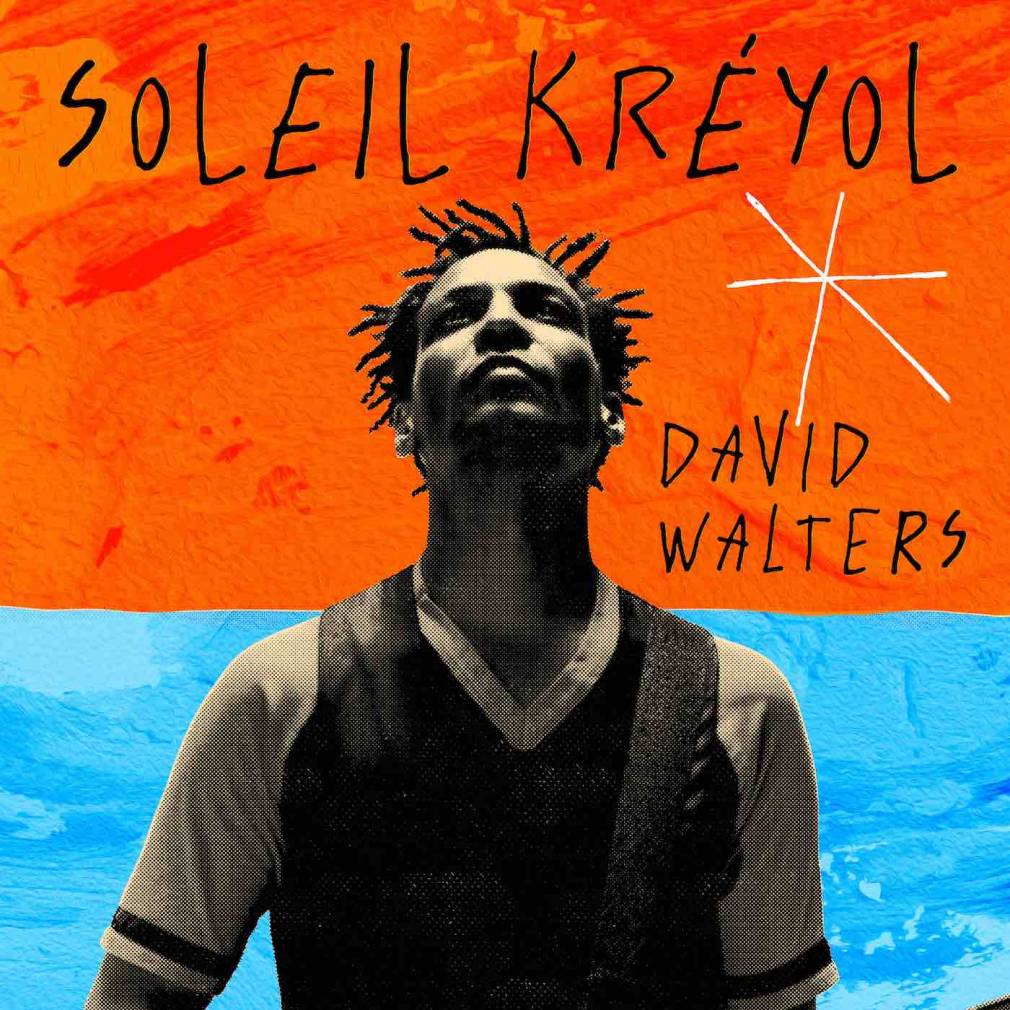
David Walters
Soleil Kréyol
(Heavenly Sweetness)
David Walters released the rays of Soleil Kréyol for this gloomy year and it helped to keep listeners’ spirits up. This solo album carries all the electro-creole 2.0 elements combined with an unstoppable groove. By singing his blended poetry, David Walters sums up the intimate language of childhood, one he heard at home with his mother and grandmother from Martinique. It is his family history that is being transformed into music, a summoning of the past, the history and geographies of Creole, as well as the future of musical crossbreeding that travels from Afrobeat to Haitian kompa to soca, with indefinable hip-hop and electro drifts. The album is also the reflection of a musical dialogue between the West Indies and Africa, as evidenced via featured artists such as Seun Kuti, the youngest son of Afrobeat legend Fela Kuti. – Julie Denis
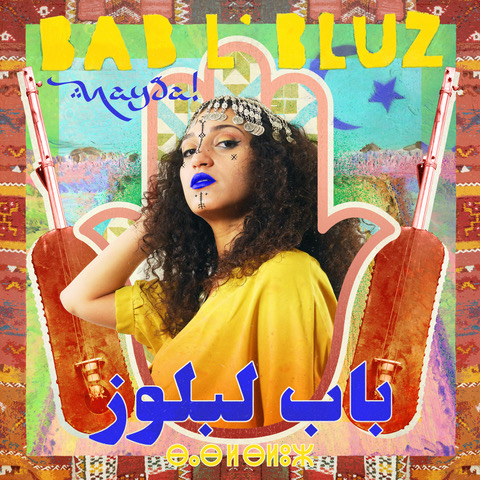
Bab L’bluz
Nayda !
(Real World)
A Gnawa spiritual and intellectual awakening is within reach on this album. This Franco-Moroccan quartet is committed to a small revolution that is part of Morocco’s Nayda youth movement – a new wave of artists and musicians who draw inspiration from the local heritage and libertarian through lyrics in Darija, the Moroccan dialect of Arabic. To do this, Bab L’Bluz seizes the rhythms of Gnawa trance, fed by psychedelic desert rock and softened by Indian tablas and tanpuras, and takes them to places that add nuance to the poetic power of the record through a touch of cosmic incense. Their music exists beyond partitions and fuses Gnawa sounds with everything that inspires the group. It’s a bohemian aphrodisiac universe. – Julie Denis
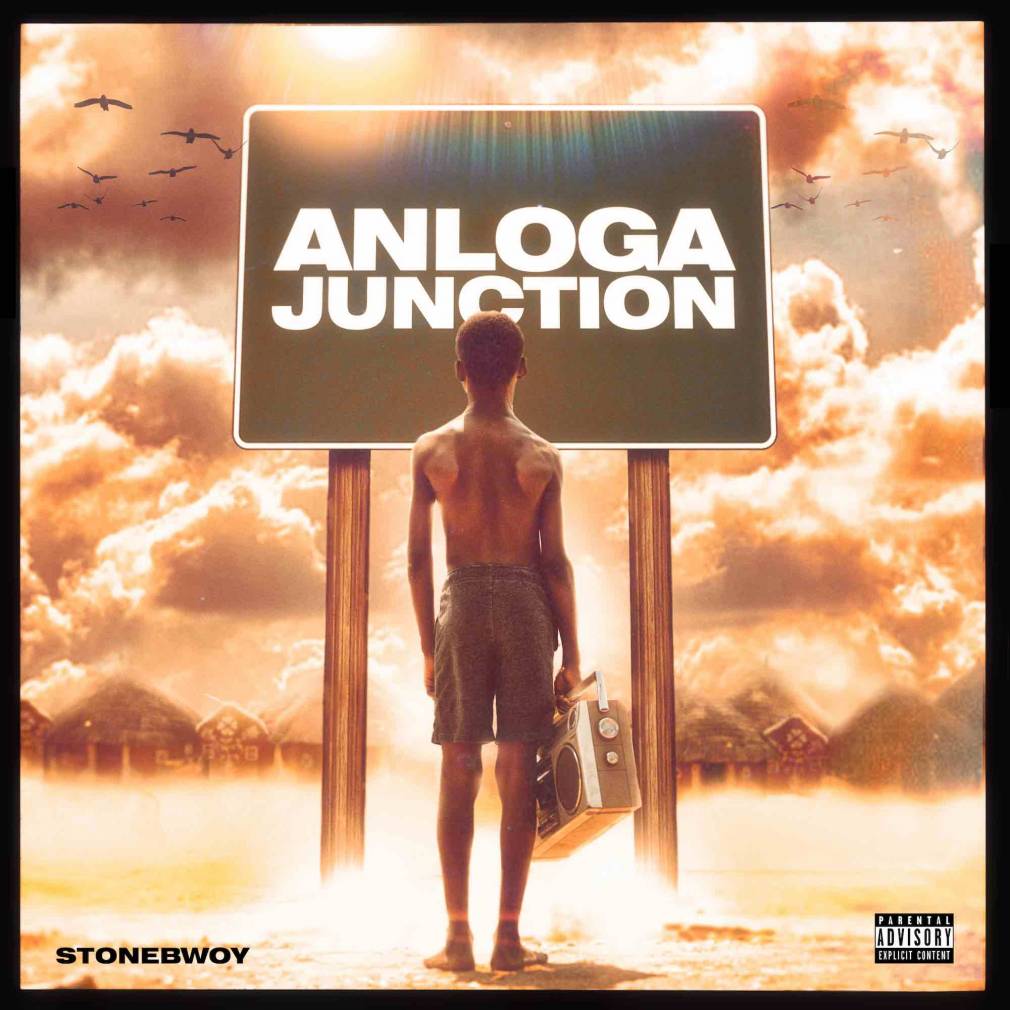
Stonebwoy
Anloga Junction
(Burniton Music Group)
This dancehall diamond is without a doubt Stonebwoy’s most successful release to date. The singer seems to have found the ideal alloy to polish his favourite genre, composed of reggae, soca, RnB and highlife touches, yet entirely made in Ghana. It is clear that Stonebwoy has gained in nuance and maturity on this new opus, which belies a deep reflection on the musical currents of the Black Atlantic. He spoke strongly on the subject following his first trip to Kingston in 2016: “Reggae is the musical connection that bears witness to the tragic journey of black slaves from Africa to America: it carries within it this connection of peoples. The African continent is Jamaica, and that’s it, we’re all brothers and sisters.” Stonebwoy has championed this trans-oceanic link since the beginning of his career and evokes it on this album, notably in the song “Journey.” It is a pan-African dream come true on this album for those who never left Ghana to try their luck in America or Europe. The singer encourages African pride throughout, notably on “African Idol.”. – Julie Denis

Various Artists
Verão Dark Hope
(Príncipe)
Despite having been around for over a decade, the mark made by label Príncipe Discos on dance music is still as unparallelled and distinctive as ever. This summer’s release – a two hour compilation – only reinforces that. Bringing together pioneers of batida such as Marfox, Nervoso and Nigga Fox with an impressive young guard of producers led by Nídia, Lycox and Danifox amongst many others, the sound of the Lisbon ghettos has been distilled into thirty-two very precise tracks. In this collection of hitherto unpublished archives and new sounds, each more intriguing and addictive than the last, the great Príncipe family has impressed us with the stylistic coherence that emerges, despite the often very different approaches taken on this record. From atmospheric tarraxo with an ambient feel, to progressive batida and high-flying afro house, this ‘summer of dark hope’ gives us what the first compilation DJs do Guetto gave us in 2006 (before the label was created) – the birth of a new era. – Simon Da Silva
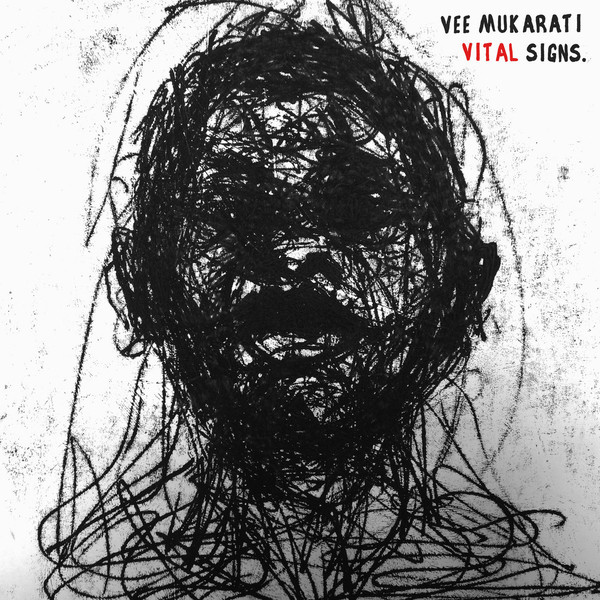
Vee Mukarati
Vital Signs EP
(Primrose Records)
The Zimbabwean saxophonist Vee Mukarati is a breath of fresh air in the world of jazz. This afro-jazz folk-soul-pop sound is unlike any other. In the course of his compositions, Vee experiments with a form of catharsis by alternating muffled voices and spoken words, evoking the perils and hopes of migration and the fate reserved for many Africans once they have crossed the Mediterranean. The artist also aims to shift the story of his ancestors’ music, which has often been overlooked in times of colonization. “I wanted a sound rooted in Zimbabwe and in distinctly African sound textures to try to bring jazz back to its African roots. Almost all the songs are written and sung in my mother tongue, Shona, and there is extensive use of traditional instruments such as the mbira, balafon and traditional drums.” – Julie Denis
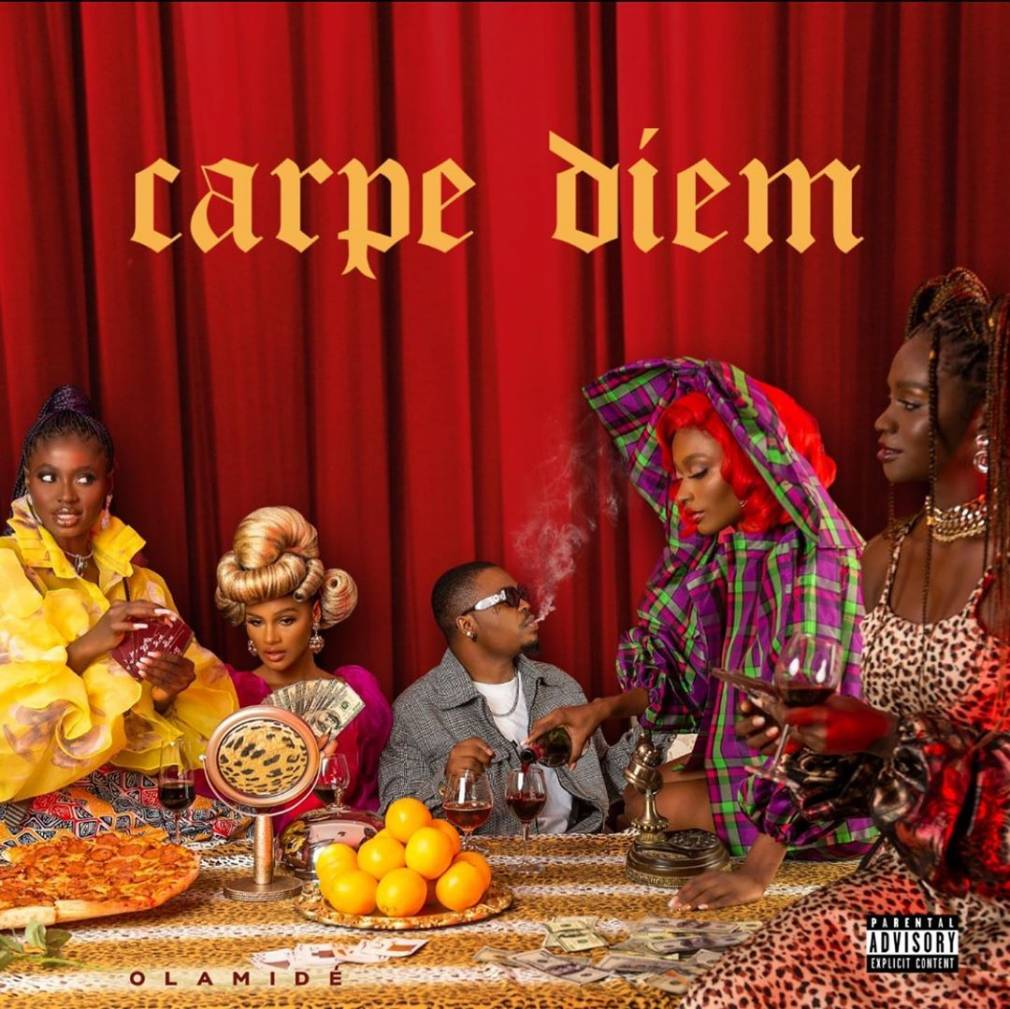
Olamide
Carpe Diem
(YBNL Nation)
Carpe Diem, Horace, 23 B.C.: “pluck the day as it is ripe”. Carpe Diem, Olamide Adedeji, 2020: “The mood is YOLO! I wanna live and limits are nothing, I just wanna do all the things that I wanna do and live my dream to the fullest”. That’s precisely what the 10th album of Nigerian Hip-Hop giant Olamide is all about. The superstar has had to build his career on fierce verses and harsh instrumentals (“Science Student”), but “Carpe Diem” is his album of serenity and calmness. To play hard and to be the toughest is no longer needed: he wants to sing, to have fun and to make the music he likes. This new attitude, the result of a long personal journey, is expressed in most of the tracks, from the soft “Infinity” to the triumphant “Eru”. The rapper, now head of a powerful label, also takes advantage of this positivity to showcase some of the most talented emerging artists such as Omah Lay, Bella Shmurda or Bad Boy Timz. – Nils Bourdin
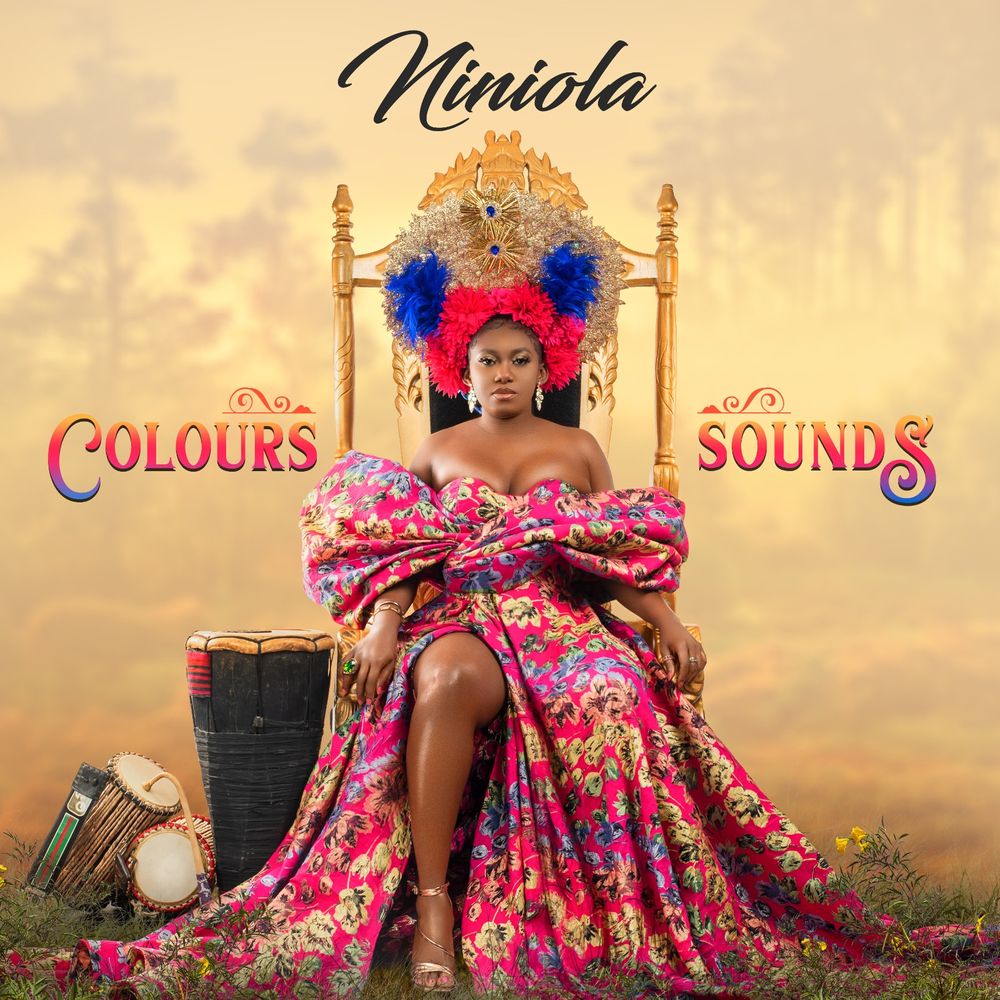
Niniola
Colours and Sounds
(Drumroll Records)
Sitting comfortably in her throne on the project’s cover, Niniola’s attitude is clear: she is coming to take back her title of Queen of Afro-House with “Colours and Sounds”. From her debut to her huge hit “Maradona”, the singer’s ambition has been to mix Nigerian popular music with house and more electronic sounds; in 2020, with Amapiano conquering the whole of Africa, it must be admitted that Niniola has been visionary. The hypnotic sounds and melodies so unique to the singer are very present on Colours and Sounds, and the artist has been able to diversify her musical offering, for example trying Reggae/Dancehall on “So Serious”. The project also shines through its distinguished guests, from South African artist Busiswa to Kenyans Sauti Sol, Femi Kuti, Nonso Amadi and American producer Timbaland. – Nils Bourdin
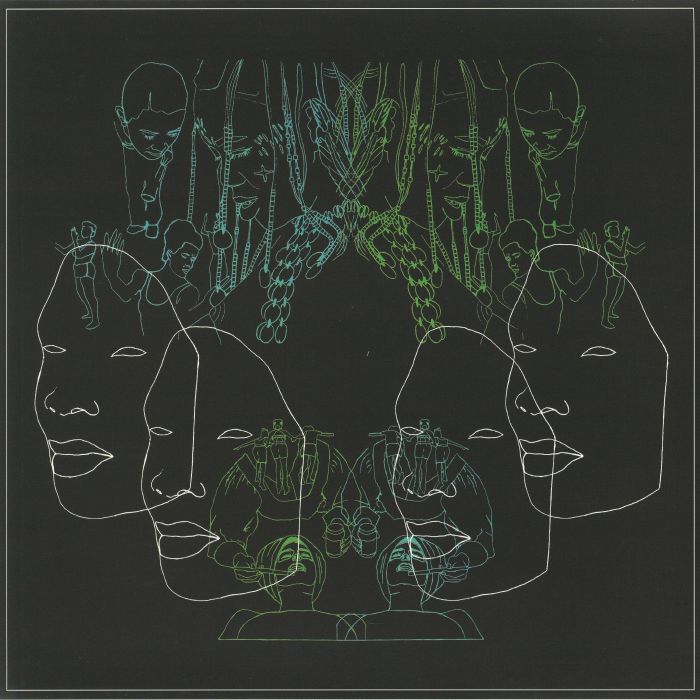
dumama + kechou
Buffering juju
(Mushroom Hour Half Hour)
This first album by the nomadic folk duo is a kaleidoscope of South African identities. Formed by the two troubadours Gugulethu Duma (vocals, synths, uhadi) and Kerim Melik Becker (beats, arrangements), dumama+kechou is a veritable UFO of an outfit that borrows elements of language from the genius approaches of Sun Ra and Alice Coltrane. It includes elements that the duo filters through polyrhythmic incantations in the Xhosa language spoken by Madosini – the musician who taught Dumama the art of uhadi, the South African equivalent and probably African ancestor of the Brazilian berimbau. This basic recipe is then mixed with various new landscapes such as those of desert blues and hip-hop. It is unclassifiable patchwork art that challenges conventions with infinite creativity. “It is an open story in the sense that it has no definitive end. We’ve tried to create a structure where each song spills over into the next, or pours into a sound field that comes back regularly. More than a planned succession of songs, it’s a journey.” – Julie Denis
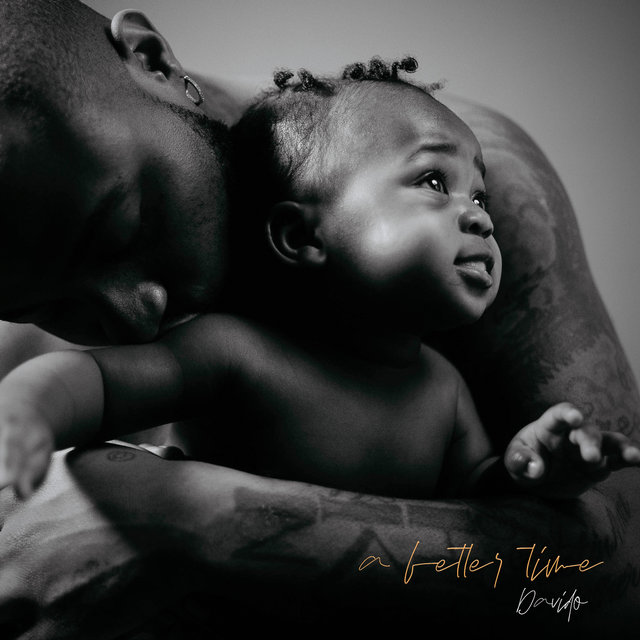
DaVido
A Better Time
(Davido Worldwide Entertainment)
Following up from his previous album, the hedonistic A Good Time, which established him not only as one of the biggest stars on the African continent but also brought international acclaim, DaVido has returned with a healthy dose of good vibes for a troubled year. He opens the festivities by silencing his detractors with the unstoppable hit “FEM”, a track that was also the anthem of the #EndSars protest movements that have shaken Nigeria in recent months. Without taking many risks but maintaining his course as an ambassador of afropop, DaVido continues to demonstrate his abilities to compose the ultimate soundtrack of optimism and joy. This is a dynamic that he fully embraces on A Better Time, perhaps to the detriment of creating something more homogenous or clear. But whatever the case, the immutable DaVido gives us a glimpse into a serene world, a real breath of fresh air that reminds us to celebrate life whenever we can. – Simon Da Silva
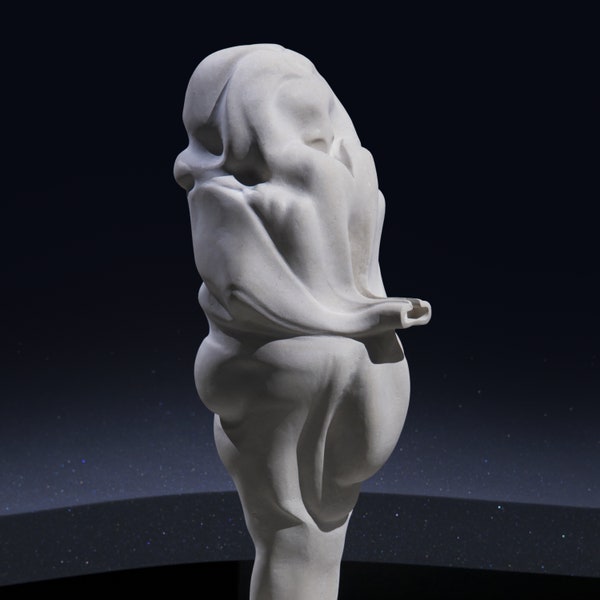
Lafawndah
The fifth Season
(Latency)
The High Priestess is at the forefront of a spiritual, experimental sound world in which “You, at the End” is the cornerstone – a masterful rereading of a poem by Kate Tempest. This second album by the London-based singer is about letting go and the healing power of music. Itdraws inspiration from Egyptian zār, traditional Indian and Gnawa music, as well as from representatives of American minimalist music such as Steve Reich, Monte Young and Terry Riley. “I have always been fascinated by trance states. I often think about how we listen to and consume music now. For me it is very important not to forget the social, almost psychiatric, aspect of music, in that it is capable of healing,” says Lafawndah. This is an incantatory piece haunted by the twilight brass instruments of Theon and Nathaniel Cross, the new flames of London jazz, Valentina Magaletti’s timpani, Nick Weiss’ keyboards and the rapper Lala &ce for a superb final duo turn. – Julie Denis
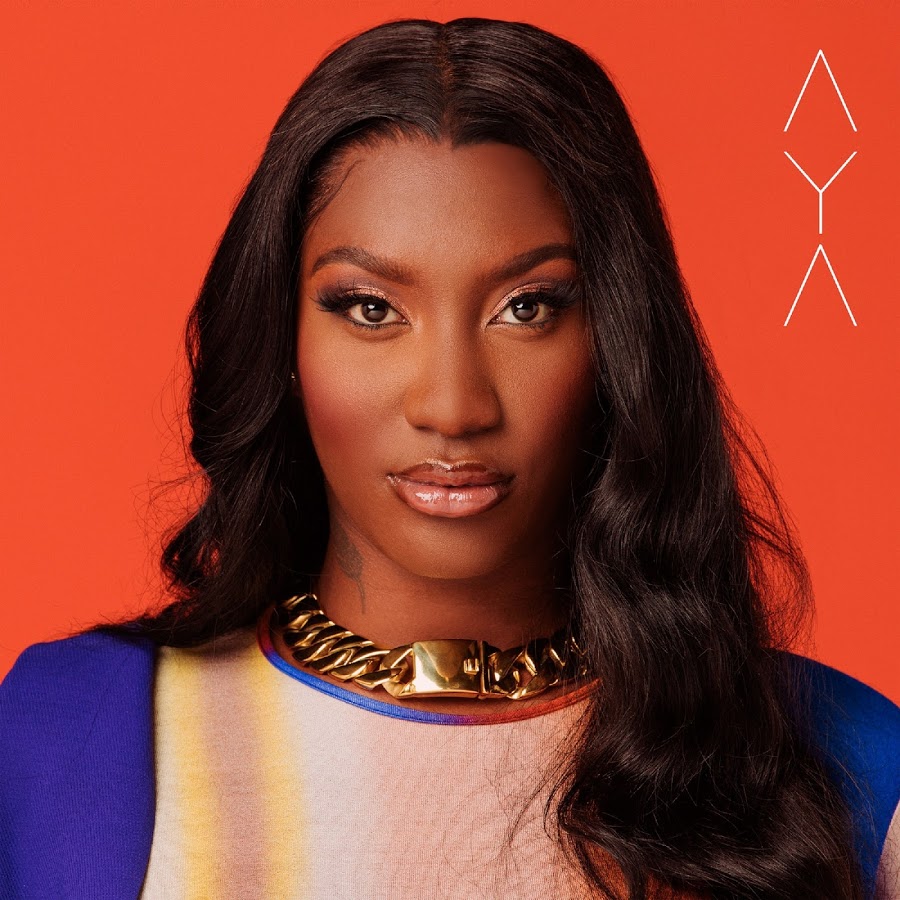
Aya Nakamura
Aya
(Rec 118)
After Journal intime (2017) and Nakamura (2018), with Aya, Aya Nakamura has released one of the best albums of 2020. It’s an album about love where the French singer really opens up. On it, she deftly expresses the complexity of new love in a way that’s as enticing as it is unsettling. Her songs describe disappointment (“Ça blesse”, “La machine”), the difficulties of trusting another person (“Plus jamais”, “Love de moi”), as well as her expectations and demands for her potential partner (“Jolie Nana”, “Biff”). But the album also talks about the moment when you let your guard down; about when you fall in love and about the bonding and joy that can emerge (“Fly”, “Doudou”, “Nirvana”). Aya Nakamura’s lyrics are full of affirmations of self love and power like on “Tchop”. Production includes influences of zouk (“Growing Feelings”), kompa (“Preferred”) and Nigerian Afrobeats (“Doudou”). With this album, Aya Nakamura has secured her status as an icon. She is now the most listened to French artist in the world. It’s well deserved. – Renaud Brizard

DJ Maphoriza x Kazba De Small (Scorpion Kings)
Once Upon a Time in Lockdown
(Sony Music)
During the first lockdown the two Pretoria-based producers whose triumphant pairing resulted in the excellent Scorpion Kings in 2019, teamed up for the fourth time in the space of a year for Once Upon a Time in Lockdown. The South African duo continue their exploration of amapiano – the flagship style of national house music that is gaining ground. For more than an hour and a half, Maphoriza and his sidekick Kabza let fly a volley of full and heartwarming uninterrupted hypnotic grooves. As each track plays, they manage to break the sort of monotony that has started to set in with this genre, instead giving us some welcome fusions like with the use of gqom on the dark and bewitching “Suka” featuring Busiswa. With Once Upon a Time in Lockdown, the pair of producers, also known as the Scorpion Kings, plunge us into the deepest layers of amapiano, and it is clear that they’re still the masters of the genre. – Simon Da Silva
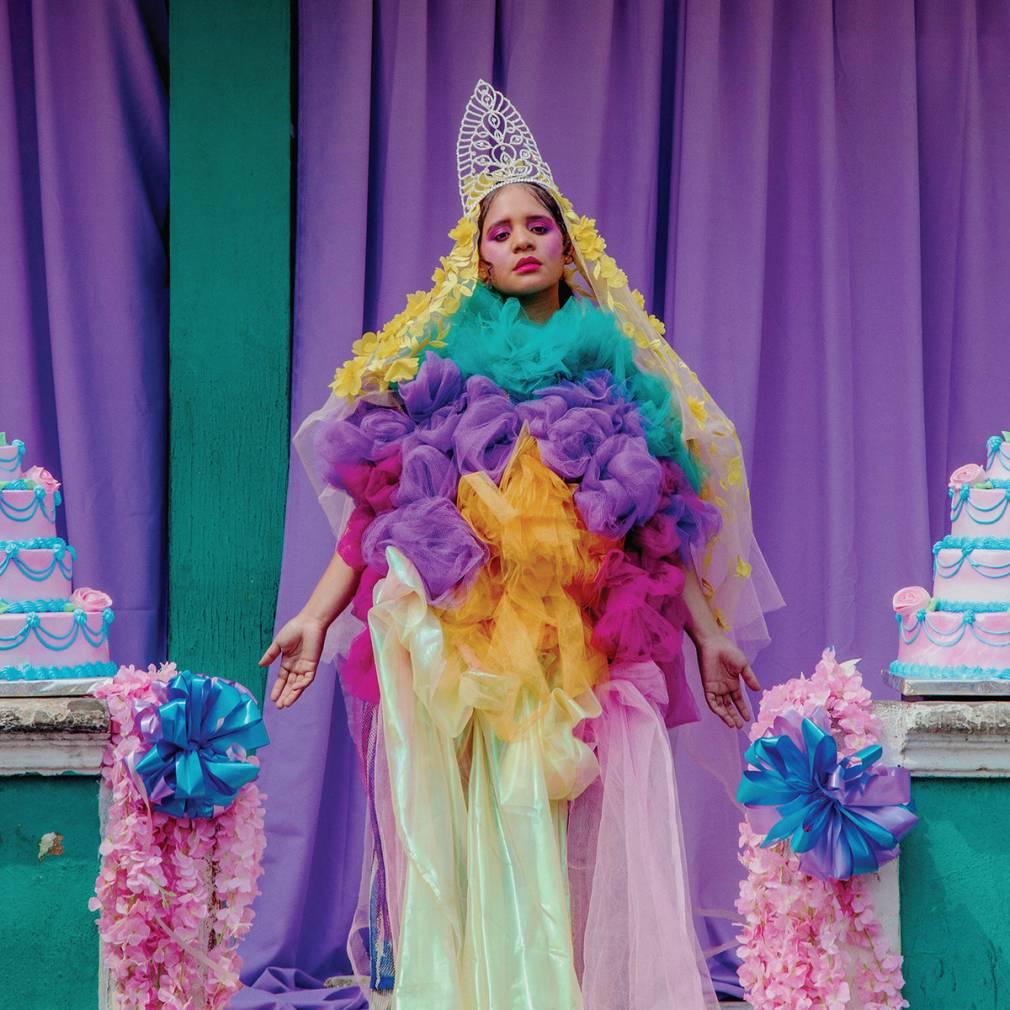
Lido Pimienta
Miss Colombia
(ANTI)
Lido Pimienta is the Frida Kahlo of Cumbia, a queer feminist visual artist and curator who won the 2017 Polaris Music prize and makes music about gender, race and motherhood throught the prism of her Afro-Colombian heritage. Miss Colombia is her third album and the title a raised eyebrow reference to the super awkward 2015 Miss Universe Pageant when the crown was mistakenly awarded to Miss Colombia rather than the winner Miss Philippines (oops!) Recorded between Canada and Colombia’s Caribbean Coast, the eleven tunes on Miss Colombia move from rootsy cumbia to folktronica and carnival vibes, and feature Pimienta’s multi tracked vocals over glitchy loops, dubby beats and folkloric percussion. A timely album for the year of Black Lives Matter, the highlight of Miss Colombia is `Pelo Cucu’ which celebrates the beauty of afro hair texture. With Miss Colombia Lido Pimienta fixes her crown and that of her global sisters. – Lucas Keen
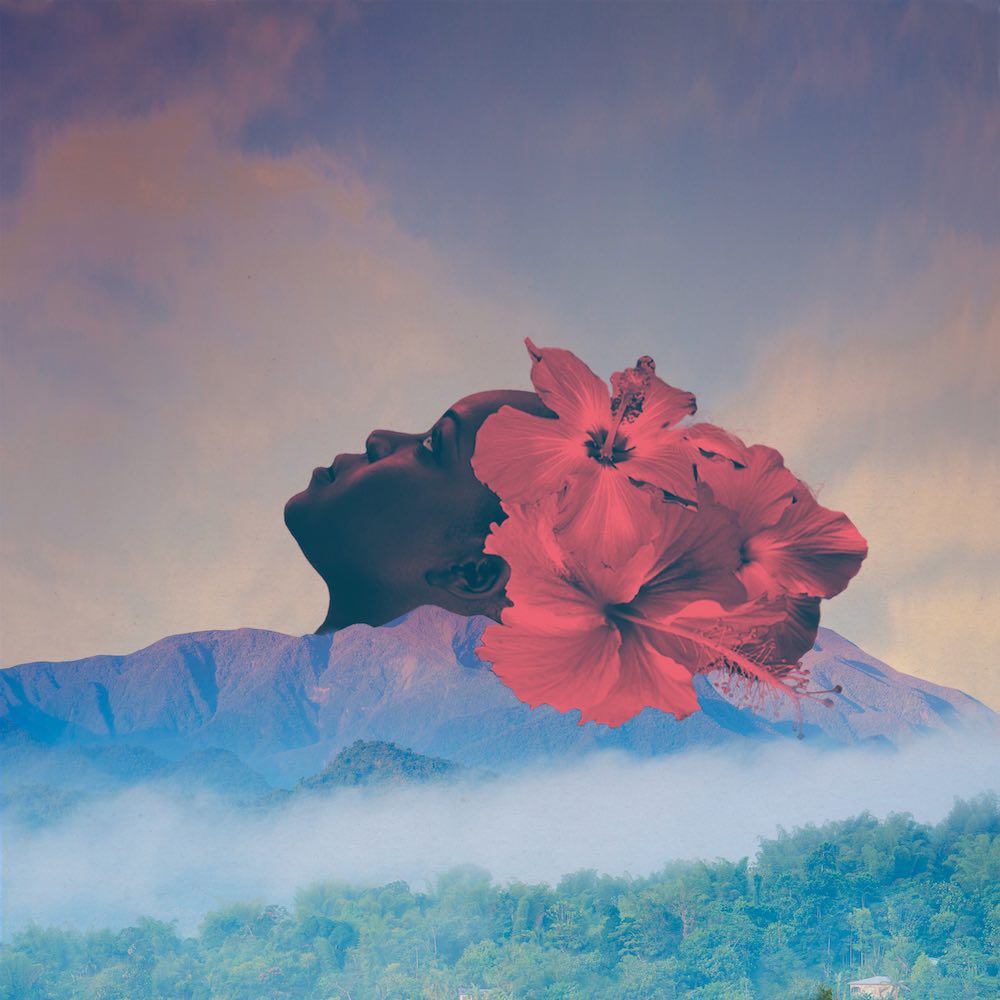
Zara McFarlane
Songs of an Unknown Tongue
(Brownswood Records)
On this fourth electro-tinted album tinted, the singer takes root in Jamaica, the land of her ancestors. With a career spanning ten years and four albums, this voice of British jazz had never before dared to dig the fertile ground of her Jamaican origins. By delving into a personal history, her lyrics and rhythms are inevitably interwoven with collective history that always includes the shadow of the colonial relationship between the British crown and its former colonies. Between soulful jazz melodies and spiritual, ancestral rhythms, centuries of exactions that marked the Black Atlantic can be heard through the voice of this young British-born woman. Hence the enigmatic album title, which consists, in her own words, of “relearning the past to inform the future, in regaining consciousness and appropriating lost stories.“- Julie Denis
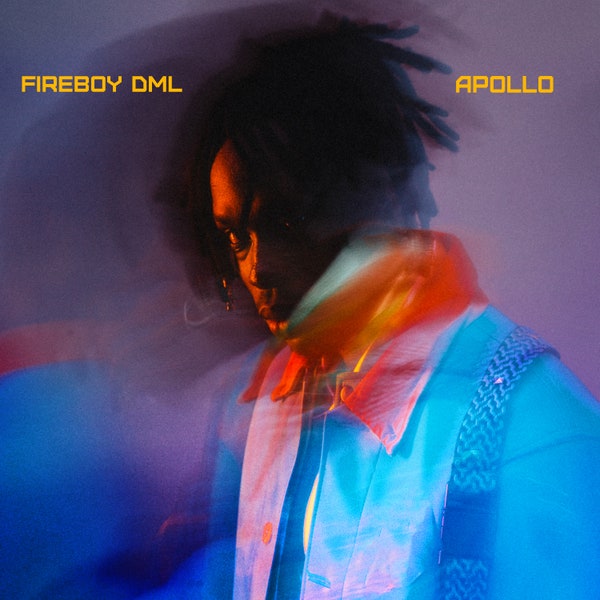
Fireboy DML
Apollo
(YBNL Nation)
After his first project Laughter, Tears & Goosebumps, in August 2020, YBNL Nation’s most promising rookie unveiled APOLLO, the project that everyone expected as the album of maturity. On the 17 tracks, the Nigerian singer nevertheless kept the same seductive and reckless attitude of his debut and his huge hit “Jealous”. The playboy goes even further in his coquetry and flirting, delivering an impressive number of romantic tracks with melodies more languorous and sensual than ever. The hungry beginner is now a confirmed popstar: his new voice mastery and his sharp artistic direction prove it very clearly. Carried by the hits “Eli”, “Tattoo” or “New York City Girl”, this groovy and very RnB album definitely marked the 2020 Naija Pop, and has probably accompanied many loving hearts throughout this particular year. – Nils Bourdin
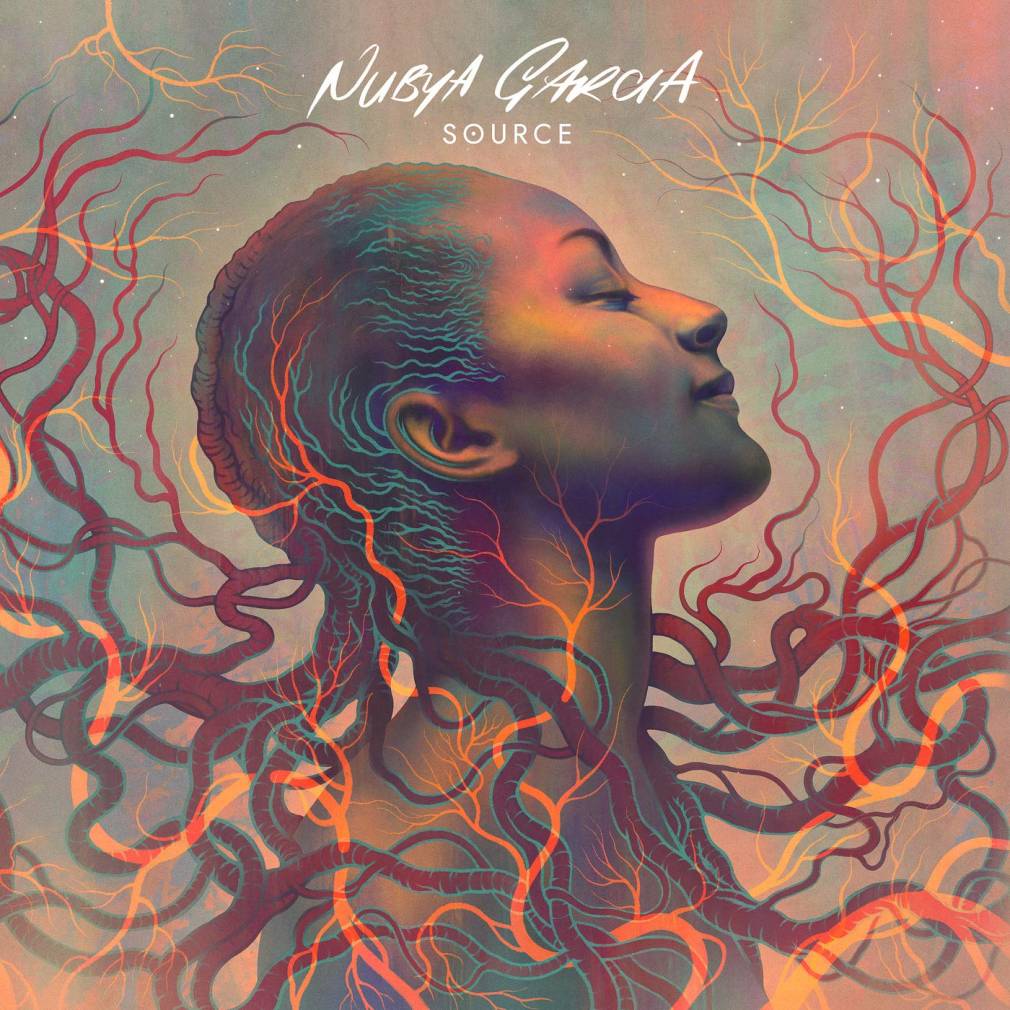
Nubya Garcia
SOURCE
(Concord Jazz)
Yet another alumni of the musical hothouse that is Tomorrow’s Warriors, Nubya Garcia’s astral debut on Brownswood Records see’s the in-demand tenor saxophonist calling up a who’s who of the London Jazz scene for an album recorded on a floating analogue studio boat in East London. Inspired by life on the road and a homesickness for what Garcia describes as `communities of goodness’ Source exemplifies the omnivorous approach to music that makes this young generation of Black British jazz musicians so exciting. This is jazz that invites in Cumbia, Afrobeat and Dub, and the highlight of Source arrives on `Stand with each other’ featuring the voices of the female frontline of Kokoroko joined in a celebration of sisterhood and friendship. – Lucas Keen
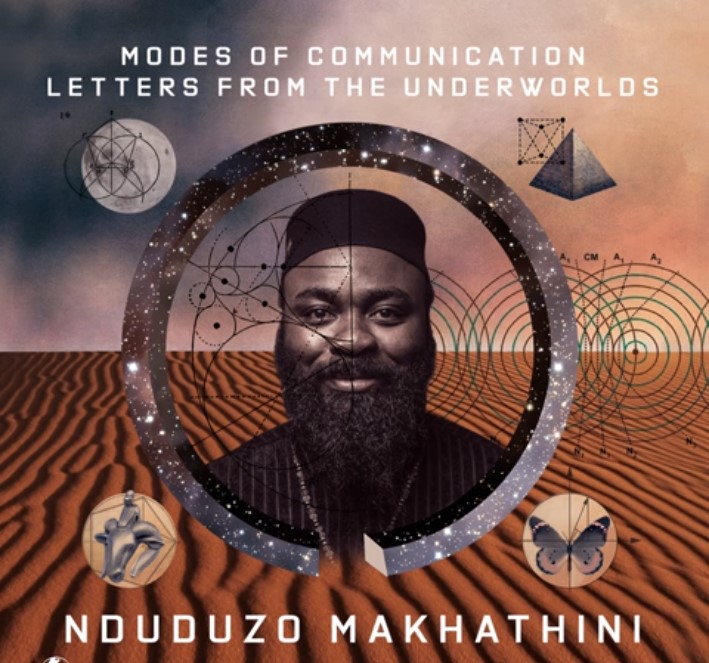
Nduduzo Makhathini
Modes of Communication: Letters from the Underworlds
(Blue Note)
The visionary pianist is delightful on this new album, released via the mythicalBlue Note label. Nduduzo Makhathini grew up in a family of musicians near the lush, rugged hills of Umgungundlovu in South Africa. It is an environment where music and ritual practices live in symbiosis. The church also played an important role in his search for spirituality, as did the legends of South African jazz, especially Bheki Mseleku, Moses Molelekwa and Abdullah Ibrahim. A professor and researcher, Makhathini is now the head of the music department at Fort Hare University in the Eastern Cape Province. He has performed at many renowned festivals such as the Cape Town International Jazz Festival and the Essence Festival (in New Orleans and South Africa), and made his first appearance in 2019 at the Blue Note Jazz Club in New York. He has now signed with the label and released an album whose healing powers stretch far and wide. – Julie Denis
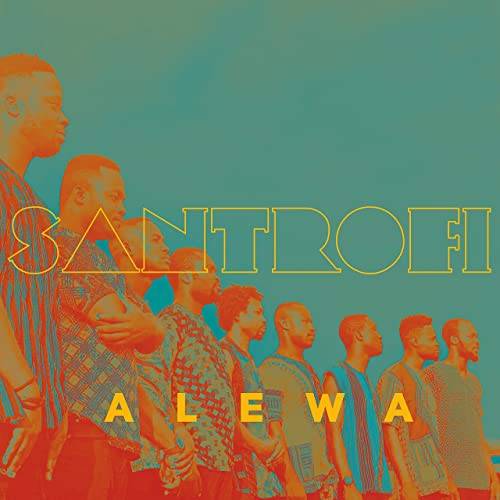
Santrofi
Alewa
(Outhere Records)
Santrofi are led by bassist Emmanuel Ofori whose credentials include playing with elders Ebo Taylor and Pat Thomas so it’s no surprise that the debut album from this box-fresh Accra band sounds like they borrowed their uncle’s coveted record collection and skipped class to school themselves on the golden age of Ghanian music. Yes this is classic highlife from a time when collars were wide and Pan-African hopes high. With warm stabs of organ, chatty brass, and gorgeous arpeggiated guitar, the ten tracks of Alewa have a lilt from a sepia age. The nostalgia is completed with an interlude of Kwame Nkrumah’s `United States of Africa’ speech delivered at Independence. – Lucas Keen
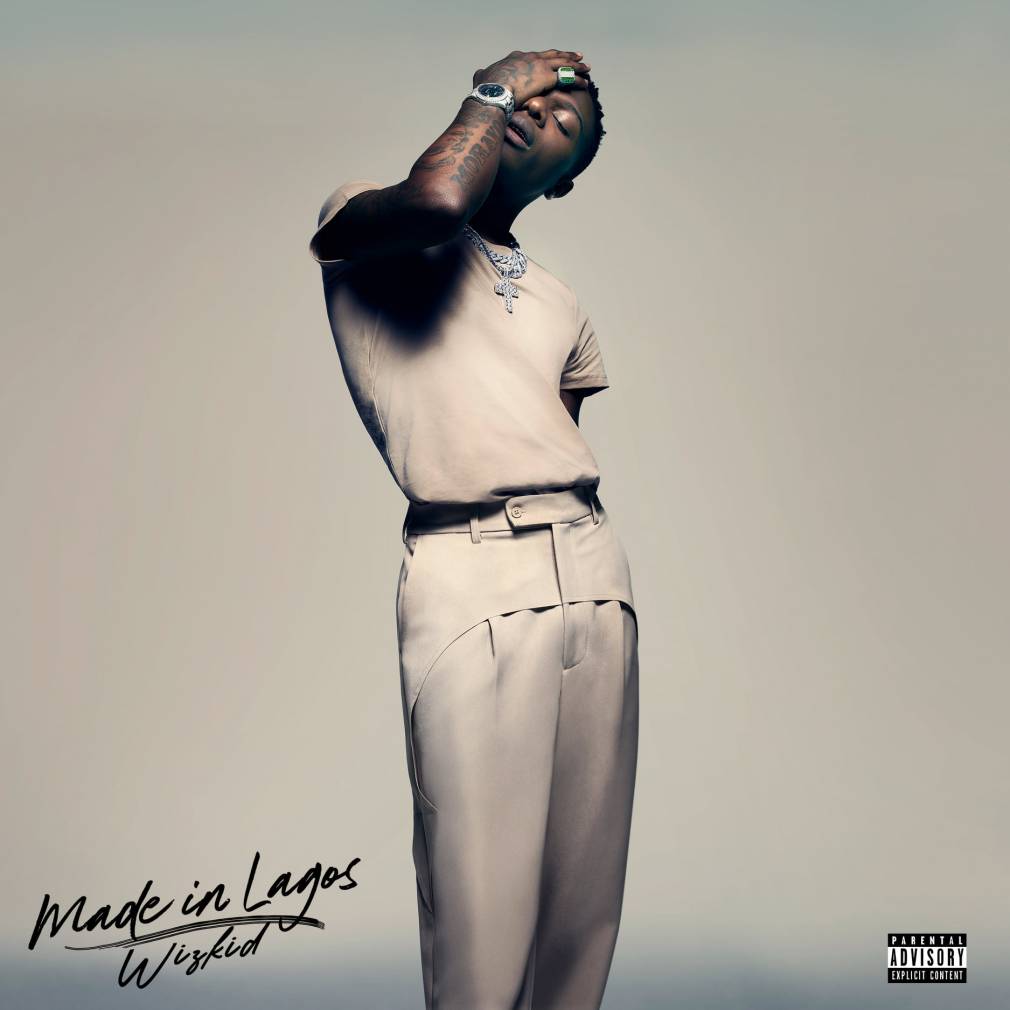
Wizkid
Made In Lagos
(Starboy Entertainement/RCA Records)
With Made In Lagos, Wizkid has definitely released one of the best albums of his discography so far. For one, there is no shortage of guests, from Burna Boy to Damian ‘Jr. Gong’ Marley via Skepta, Tems, and Ella Mai, and this ultra-sensual album stands out against a no-frills production that doesn’t get too experimental in order to give pride of place to the fundamentals of Afrobeats. It’s a return to roots, something Wizkid is only too happy to shout about to anyone willing to listen: ‘The best music in the world is made in Lagos!’ It’s an ode to the fusion style that was born in the Nigerian capital and that has made Wizkid an international star in less than a decade. Also this album, with its heady tracks, topped off with a few Latin and Caribbean salvoes, and where the saxophone blazes at will, is a profession of faith, a mark of devotion to the melting pot of sounds brilliantly shaped by great Afrobeats producers. Juls, Kel-P, P2J, and Black Jerzee (amongst others) are all present at the controls of this fourth album whose simplicity is a delight.
Makia Fofana

Oumou Sangaré
Acoustic
(No Format)
Discovering an acoustic album by Oumou Sangaré for the first time is a bit like finding a pearl in an oyster. Very thankfully, the Malian diva grabbed the baton extended to her by the label No Format! at the end of a concert she was giving in London for the label’s 15th anniversary. All live, and without much of a safety net, she has distilled eleven of her songs, purging them of any superfluous additional effects to emphasise her characteristic vocal timbre. With an open heart, Oumou Sangaré mostly revisits her album Mogoya, a rough diamond that she has now finely cut to make it shine more brightly than ever, revealing to us the heart of Wassoulou music. She also sings some of her classics, surrounded by unassuming but essential musicians (on guitar, kamele ngoni and keyboard) and her faithful backing singers Emma Lamadji and Kandy Guira. With an arresting natural elegance, she portrays the good and bad sides of Malian society, all while speaking up for the women of the world as a self-respecting former Amazon of Africa. – François Renoncourt
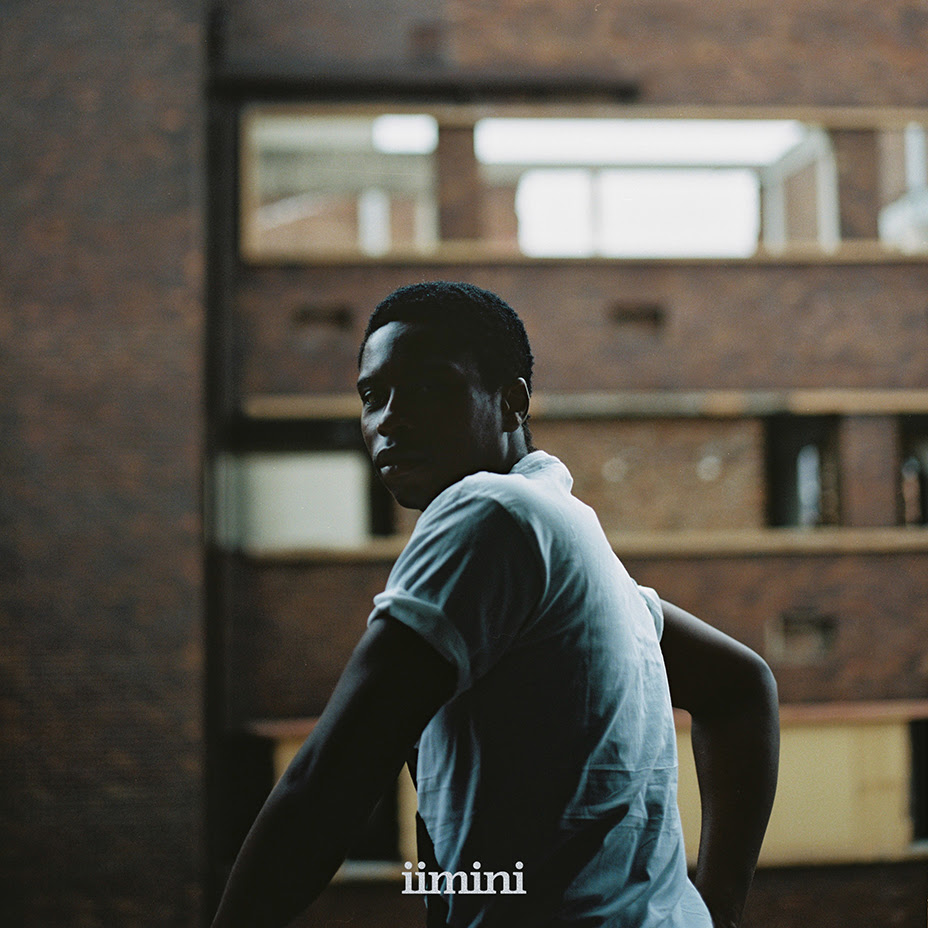
Bongeziwe Mabandla
iimini
This album is a masterpiece of purity, grace and balance, one whose miracle lies in sound material drawn from reality: from the bustle and gossip of the street to bird song to the crackle of walking on autumn leaves. Bongeziwe creates spaces in music, revealing the intimacy of a lover’s hollow through lofty and luminous folk. In twelve tracks, iimini – “the days” in Xhosa – returns to a passionate story, one that doesn’t rely on pathos as a crutch. To add to the authenticity of his folk maskandi (a South African musical genre originating from Kwazulu Natal and played in the big cities by migrant workers often accompanied by a guitar with adapted tuning ed. note) refined orchestrations, minimalist choruses and percussion are included, all wrapped in electronic textures composed to measure by Mozambican Tiago Correia-Paulo. – Julie Denis
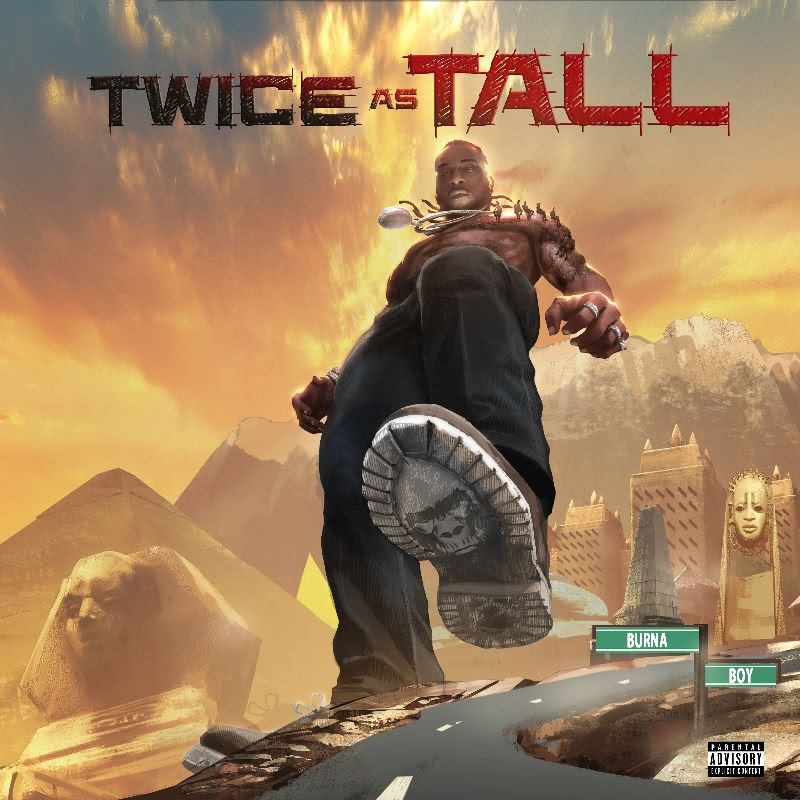
Burna Boy
Twice As Tall
(Atlantic Records)
For Damini Ogolu the challenge with Twice As Tall was a big one. A year after having set the bar high with the triumphant African Giant, which brought him international renown, we’d waited this new masterstroke with baited breath. On this fifth album, which could be seen as a second instalment of African Giant, Burna Boy has continued to up the ante and pursue his pan-African quest where he left off with “Spiritual” last year. Born in part out of his frustration at leaving the 2020 Grammys empty-handed, Twice As Tall is a flamboyant burst of pride from the Nigerian giant. But it’s not simply another manifestation of Burna Boy’s well-known megalomania – it is above all an extension of his noble mission to celebrate Black identity and bring his community together. The afrofusion he creates is an embodiment of his ambition and is sharper than ever. Deliberately less sunny and focused on hits than its predecessor, T.A.T celebrates a communion of beings through music (“Wonderful”) whilst at the same time angrily trying to heal the scars of a colonialist past (“Monsters You Made”). This is a great unifying work that has far more substance than its apparent lightness suggests. – Simon da Silva
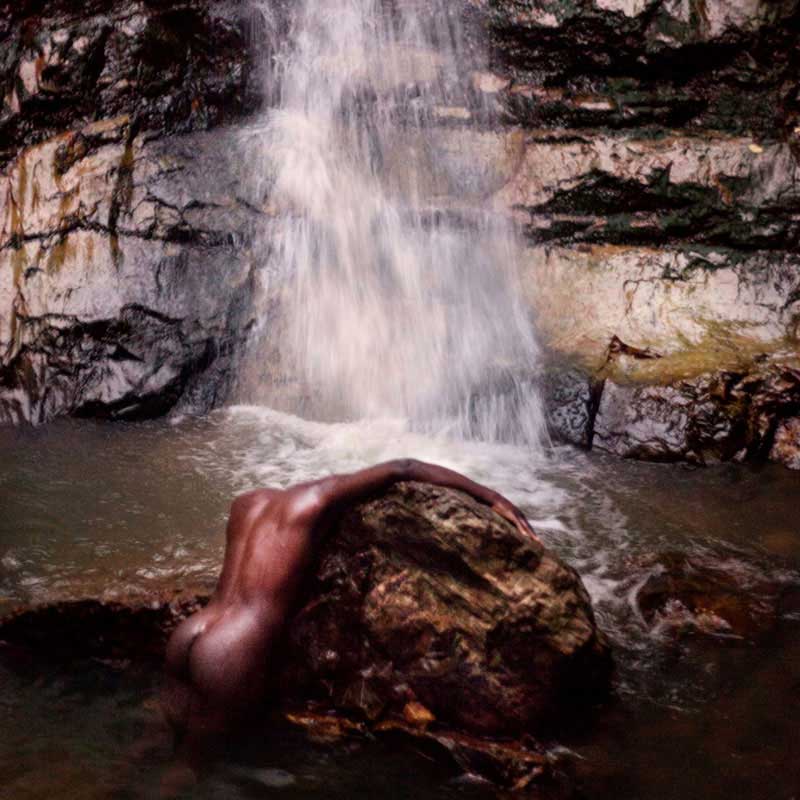
Moses Sumney
græ
(Jagjaguwar)
Two years after the success of his debut album Aromanticism, the Ghanaian-born American has released græ, a concept album that shatters every preconception imaginable. Musically speaking, græ is an incredible mixture, so we’ll try not to reduce it to one universe, seeing as Sumney’s galaxy is so vast. With no fixed genre, he mixes spoken work, song, flirts with very high falsetto and lower tessitura, deals with distorted pop, intelligent indie rock, dance floor beats, and new universes of sound. In the track “Neither/Nor” he links the cradle of American folk and country music – North Carolina – to the ancestral land of the banjo: Africa. With whichever genre he flirts, his masterful, inimitable voice is the cornerstone of each track, including those Afro-futuristic meteorites criss-crossing jazzy galaxies (“Colouour”, in a low-key collaboration with saxophonist Shabaka Hutchings). Sumney asks that ideas about gender, virility, and race be deconstructed, or at least be rethought outside of existing frameworks and rebuilt with different tools, as suggested by the poet Audre Lorde. In this journey there are friends, interludes, hits, stellar poems, ups and downs, experiments, strange reflections, returns to the past, and perhaps even a glimmer of hope shining through these 50 shades of græ… – Elodie Maillot
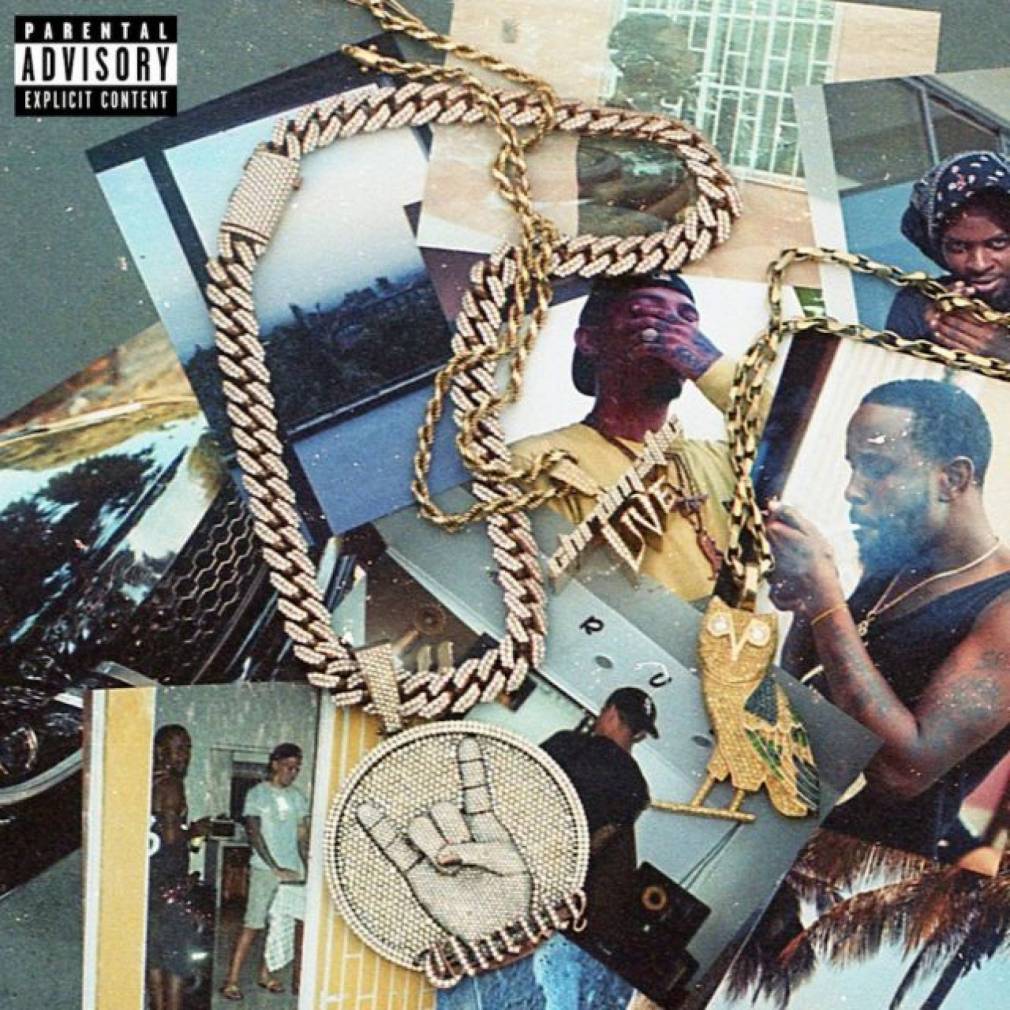
Popcaan
FIXTAPE
(OVO Records)
A new album by the Jamaican Popcaan is always an event. On 7th August the dancehall artist released Fixtape, his fourth opus and not a single moment on it will disappoint. The atmosphere and the varied styles of the album’s 19 tracks make the project feel very rich. There are slow, laid back and sunny dancehall beats to laze around to (“Chill”, “Buzz”, “Mamakita”) and at the same time harder ragga (“Fresh Polo”). Popcaan’s music can at times be trap-like, such as with the excellent “Unda Dirt” and “Murda” and we also really enjoyed the sensuality of “Suh Me Luv It” and the two songs done in collaboration with Canadians Drake and Partynextdoor (“Twist & Turn” and “All I Need”). If we combine this with Popcaan’s last two releases, we can say that the members of the label OVO (October’s Very Own) have made us feel some serious emotions over this past year. – Renaud Brizard
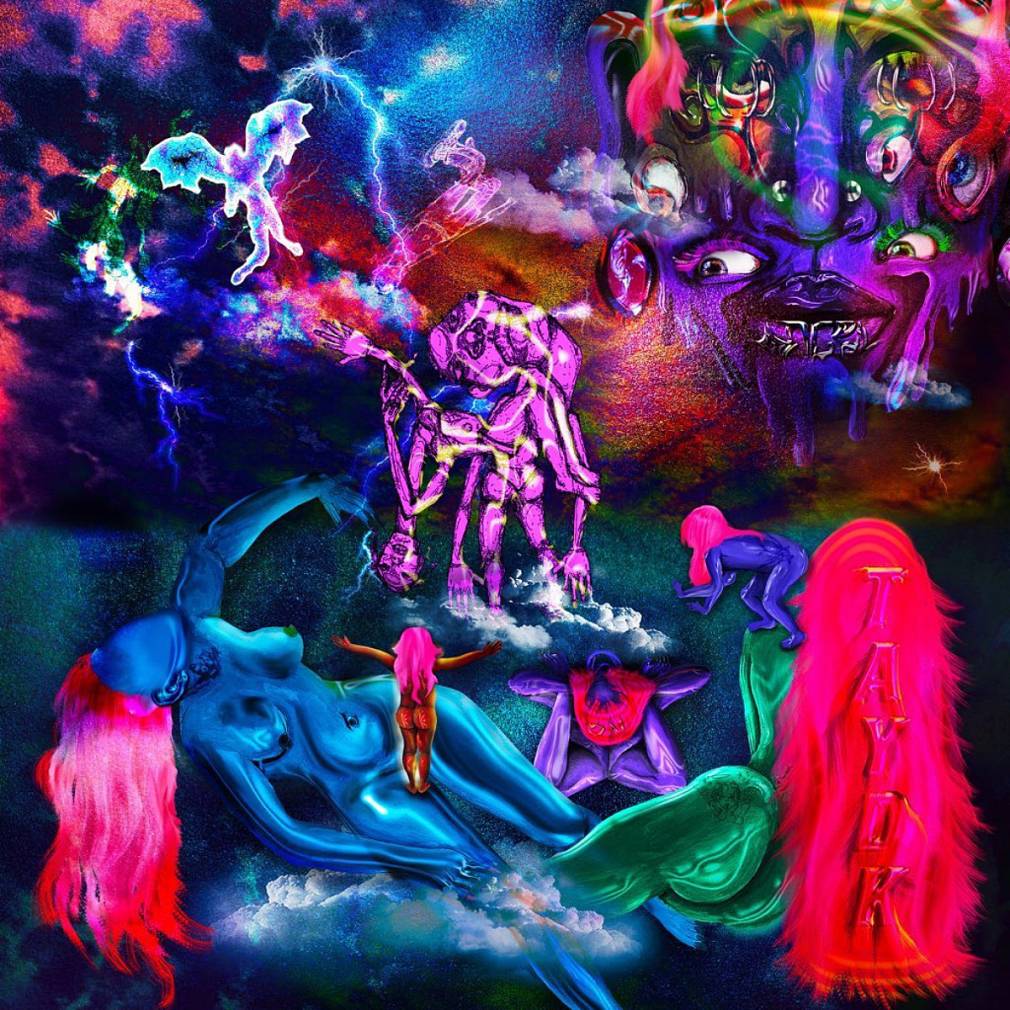
Amaarae
Golden Child
(Sad Saints Angry Angels)
For releasing her debut album at the end of 2020 the American-Ghanaian singer Amaarae, whose sensual little doll voice is absolutely unique, can never be thanked enough. Hotly anticipated, The Angel You Don’t Know makes good on its promises: Amaarae’s voice is the main thread and the tracks make it an album of polymorphous and sought-after pop. Amaarae’s lyrics are always so raw; she is assertively queer, sensual and sexual, a whole new genre of millennial punk, deliciously hardcore, and this first album is aptly titled. She leads us to many different places, playing around with great dexterity: from the ultra-pop of “Fancy” or “Party Sad Face” (featuring Odunsi, whose presence on this album is unsurprising), to the 90s tinted RnB of “Jumpin Ship” (where we also find another Nigerian sidekick, Santi, as well as compatriot Kojey Radical), to the pop-rock of “Céline”, the afrozouk on “Sad, U Broke My Heart” and the hardcore punk salvoes of a Riot Grrrl that bookend this album. From beginning to end, this album is an achievement – Amaarae reveals herself as an artist with a great purpose, and as a successful queer ambassador. – Makia Fofana
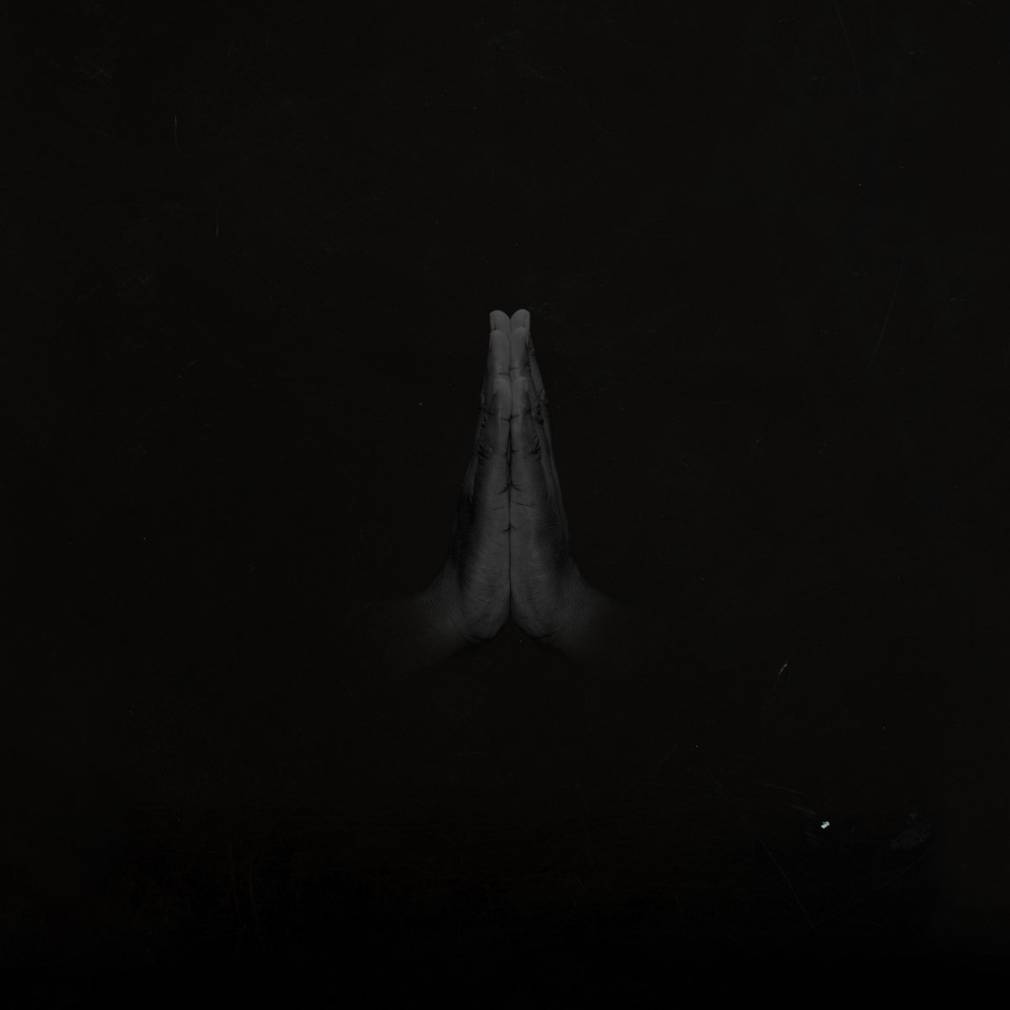
SAULT
Untitled (RISE)
(Forever Living Originals)
Sault is a collective of British musicians and singers who don’t seem ready to reveal themselves just yet. This despite the fact that, since 2019, each of their projects has been widely acclaimed. And whilst we might recognise a few voices (such as that of singer Cleo Sol), the mystery remains as to the identity of its members. The reason might be to bring the purpose of their music to the fore – a celebration of Blackness in everyway, in every place. At least this is what Untitled (RISE) says to us – its a call to rise up and fight against racism and discrimination whilst glorifying Black Experiences sung and played not only with a capital “E” but also in the plural. Here are fifteen tracks where funk rubs shoulders with batucada, gospel, Cuban rumba, (neo)soul, RnB, spoken word, disco, hip-hop, electro, and jazz,to name but a few. The record is an explosion, a continuum of tracks that will get you right in the guts; songs that issue from the Big Bang that gave birth to the Black diaspora. This is an essential album, especially when we know that George Floyd and Adama Traoré are neither the first nor the last… – Makia Fofana
